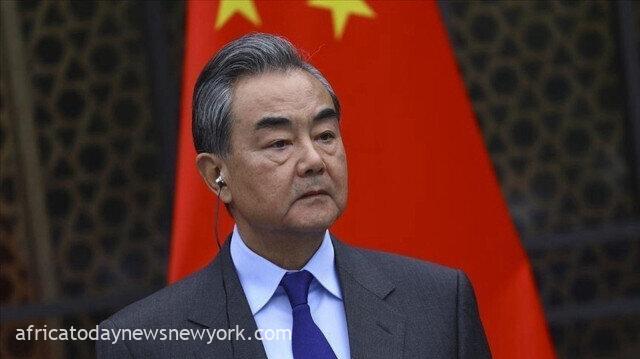China‘s top diplomat, Wang Yi, is in Russia, striving to ensure continued assistance for its engagement in the Ukraine war.
Mr. Wang and Russian counterpart Sergei Lavrov emphasised that any peace initiative must be mindful of Moscow’s interests during their post-meeting remarks.
Accusations of indirect support for Russia in the war have been directed at Beijing, which firmly denies any involvement due to its close ties with Moscow.
Russian media has indicated that Mr. Wang’s journey is intended to prepare the ground for President Vladimir Putin’s imminent trip to China.
This development follows a meeting between Mr. Putin and North Korea’s Kim Jong Un, raising concerns in the US about the possibility of an arms deal.
According to China’s foreign ministry, Mr. Wang’s four-day visit to Russia is primarily centred around strategic security discussions.
After Monday’s talks, the Russian foreign ministry said he and Mr Lavrov discussed the Ukraine war ‘and noted the futility of attempts to settle the crisis without taking account of Russia’s interests and, more particularly, its participation’.
China has introduced its own blueprint for achieving peace in Ukraine, which was disclosed during a flurry of diplomatic engagements spearheaded by Mr. Wang during his previous visit to Moscow, where he met Mr. Putin.
Read also: Amid Tensions, Biden’s Adviser Meets China Foreign Minister
While China is interested in ending the Ukraine war to repair its European relations, it also aims to disentangle this resolution from the question of assigning blame for the war. This approach is driven by China’s empathy toward Russia, as pointed out by Rorry Daniels, managing director of the Asia Society Policy Institute.
The US has alleged that China has been economically assisting Russia and supplying essential technology since the war’s commencement.
A US intelligence report released in July said Beijing is ‘pursuing a variety of economic support mechanisms for Russia that mitigate both the impact of Western sanctions and export controls’.
These claims were supported by citing China’s heightened purchases of Russian energy exports, the increased use of its currency in transactions with Russia, and the alleged supply of dual-use technology – items that can serve both civilian and military roles, such as drones – potentially for use in Ukraine.
China has consistently refuted these accusations and maintains that it holds an impartial stance regarding the conflict.
